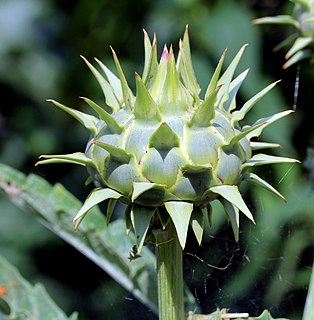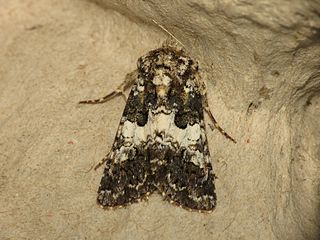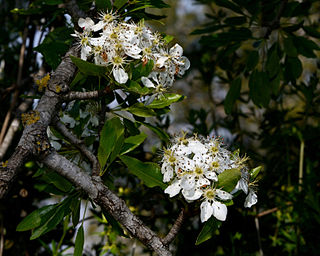
Cleopatra I Syra was a princess of the Seleucid Empire, Queen of Ptolemaic Egypt by marriage to Ptolemy V of Egypt, and regent of Egypt during the minority of their son, Ptolemy VI, from her husband’s death in 180 BC until her own death in 176 BC.

Cynara is a genus of thistle-like perennial plants in the sunflower family. They are native to the Mediterranean region, the Middle East, northwestern Africa, and the Canary Islands. The genus name comes from the Greek kynara, which means "artichoke".

Notobasis is a genus in the thistle tribe within the Asteraceae. It is native to the Mediterranean region and the Middle East, from Madeira, the Canary Islands, Morocco and Portugal east to Egypt, Iran and Azerbaijan.

The marbled polecat is a small mammal belonging to the monotypic genus Vormela within the mustelid subfamily Ictonychinae. Vormela is from the German word Würmlein, which means "little worm". The specific name peregusna comes from perehuznya (перегузня), which is Ukrainian for "polecat". Marbled polecats are generally found in the drier areas and grasslands of southeastern Europe to western China. Like other members of Ictonychinae, it can emit a strong-smelling secretion from anal sacs under the tail when threatened.

Hadena compta, the varied coronet, is a species of moth of the family Noctuidae. It is found in Europe, Morocco, Algeria, Turkey, Israel, Lebanon, Iraq, Iran, central Asia, southern Russia, China and Japan.

Hadena is a genus of moths of the family Noctuidae erected by Franz von Paula Schrank in 1802. About 15 species are native to North America, while over 100 are distributed in the Palearctic ecozone.

Hadena magnolii is a species of moth of the family Noctuidae. It is found in Morocco, Algeria, south-eastern Europe, Turkey, Israel and Lebanon, Iran, Turkmenistan, Uzbekistan and Kirghizia.
Hadena adriana is a species of moth of the family Noctuidae. It is found in Tunisia, southern France, Italy, the Balkans, Turkey, Israel and Lebanon.
Hadena gueneei is a species of moth of the family Noctuidae. It is found in Italy, the Balkans, Turkey, Israel, Transcaucasia, Iran and Turkmenistan.
Hadena clara is a species of moth of the family Noctuidae. It is found in Morocco, southern Europe, Turkey, Armenia, Azerbaijan, the Caucasus region, Israel, Lebanon, Syria and Iran.
Hadena persimilis is a species of moth of the family Noctuidae. It is found in the Balkans, the European part of south-eastern Russia, Ukraine, Turkey, Israel, Armenia, Azerbaijan, Iran, Turkmenistan and Kazakhstan.
Hadena drenowskii is a species of moth of the family Noctuidae. It is found in the Balkans, Ukraine, Turkey, Armenia, Israel, the Caucasus region, Iran and Turkmenistan.

Hadena perplexa, the tawny shears or pod lover, is a species of moth of the family Noctuidae. It is found in Morocco, Algeria, Tunisia, Europe, Turkey, Israel, Lebanon, Syria, Jordan, Iran, Iraq, northern Asia, Central Asia, northern India and western China.
Hadena silenes is a species of moth of the family Noctuidae. It is found in Europe, Turkey, Israel, Iran and Turkmenistan.
Hadena sancta is a species of moth of the family Noctuidae. It is found in Spain, Corsica, Sardinia, Malta, North Africa, Israel, Lebanon, Syria, Jordan, Cyprus, Turkey, Saudi Arabia and Yemen.
Hadena pumila is a species of moth of the family Noctuidae. It is found in Greece, Turkey, Transcaucasia, Israel, Lebanon, Jordan, Syria and Iran.
Hadena silenides is a species of moth of the family Noctuidae. It is found in Portugal, Spain, from Mauritania to Egypt, Israel, Lebanon, Syria, Jordan, the Arabian Peninsula, Iraq and Iran.

Pyrus syriaca, the Syrian pear, is a deciduous tree of the Rose family. It is the only pear species which grows in the wild in Lebanon, Turkey, Syria and Israel.
Pterotricha is a genus of ground spiders that was first described by Władysław Kulczyński in 1903.








